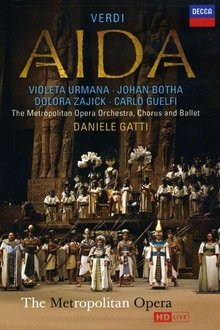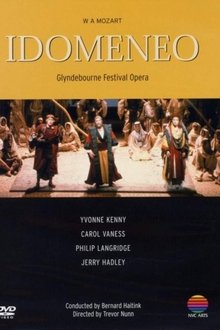William Kentridge’s multi-layered production of Berg’s masterpiece stars charismatic soprano Marlis Petersen in the title role—the enigmatic and alluring woman who is equal parts femme fatale, innocent girl, and abused victim. The men around her, whose lives she forever alters, are Johan Reuter as newspaper publisher Dr. Schön; Daniel Brenna as his composer son, Alwa; Paul Groves as the Painter; and Franz Grundheber as Schigolch. Susan Graham sings Countess Geschwitz, and Lothar Koenigs conducts Berg’s landmark score.
Related Movies
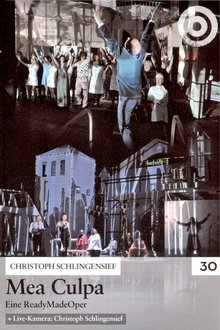
Mea Culpa – A ReadyMadeOpera (2009)
In Mea Culpa, Christoph Schlingensief blurs a delicate line: he ignores the threshold that separates the healthy from the sick. By making his cancer the subject of an opera, premiering on the largest German-speaking theater, he is putting the art district under pressure: a wonderful institution like the Burgtheater must use its artistic resources lavishly to reveal the entire "truth" about us humans. At the end of the day, when the scenery on Janina Audick's revolving stage has finally come to rest, when Isolde's last Liebestad has been sung enchantingly beautifully by Elfriede Rezabek and indescribable jubilation breaks out, then Schlingensief is completely alone with his illness.

Amadeus (1984)
Disciplined Italian composer Antonio Salieri becomes consumed by jealousy and resentment towards the hedonistic and remarkably talented young Salzburger composer Wolfgang Amadeus Mozart.
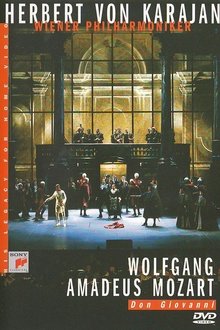
Don Giovanni (1987)
Live performance from Salzburger Festspiele in 1987. Herbert von Karajan conducting the Wiener Philharmoniker and Wiener Staatsopernchor. Stage director Michael Hampe. Starring Samuel Ramey and Anna Tomowa-Sintow.
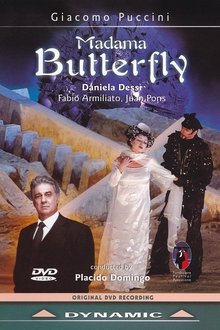
Madama Butterfly (2004)
Japan, early twentieth century. U.S. Navy Lieutenant B.F. Pinkerton inspects the house he has leased from a marriage broker. The broker, Goro, has procured him three servants and a geisha wife, Cio-Cio-San, known as Madama Butterfly. He is enchanted with the fragile Cio-Cio-San. Cio-Cio-San is heard in the distance joyously singing of her wedding. In a quiet moment, Cio-Cio-San shows her bridegroom her few earthly treasures and tells him of her intention to embrace his Christian faith. The Imperial Commissioner performs the wedding ceremony, and the guests toast the couple. The celebration is interrupted by Cio-Cio-San's uncle, a Buddhist priest, who bursts in, cursing the girl for having renounced her ancestors' religion. Alone with Cio-Cio-San in the moonlit garden, her husband dries her tears, and she joins him in singing of their love.
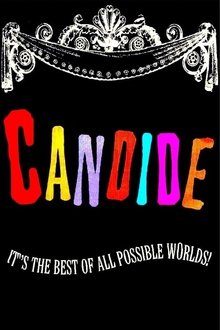
Candide (2005)
Candide falls in love with the beautiful but materialistic Cunegonde. Her barron father doesn't approve of the affair so Candide wanders, meeting all the misfortunes along the way.
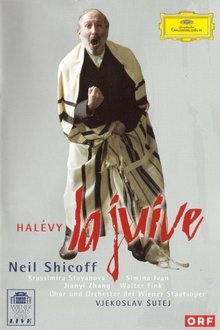
La Juive (2003)
Live performance from Wiener Staatsoper, 2003. Vjekoslav Šutej conducting Chor und Orchester der Wiener Staatsoper. Stage director Günter Krämer.
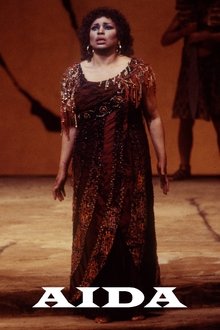
Aida (1985)
This was one of the most emotional evenings in Met history—the night Leontyne Price bid farewell to opera. Aida is the role that inspired audiences around the world to acclaim her as the greatest Verdi soprano of her time. And this telecast shows why: the famous soaring phrases that seemed to never end, the shimmering top to her lustrous voice, undimmed by the years. But most of all, there is the ennobling heart and soul Price lavished on every performance—captured here forever. With James Levine conducting the Met orchestra, chorus, and ballet.
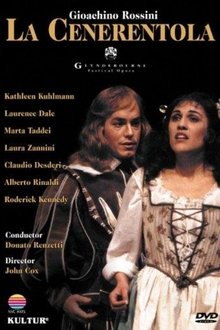
Rossini: La Cenerentola (1983)
La Cenerentola is Gioachino Rossini's version of the popular Cinderella story, an exciting mixture of comedy, pathos, coloratura fireworks and masquerade. This Glyndebourne production by John Cox captures perfectly the fairy-tale spirit of the piece, matched by Allen Charles Klein's imaginative scenery, distorted like three-dimensional cut-outs in an old-fashioned story book.
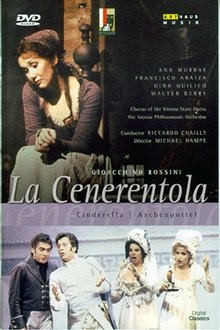
La Cenerentola (1997)
A timeless tale told in a florid bel canto style, Rossini’s take on the Cinderella story offers an ideal propellant for a virtuosic mezzo-soprano to rocket from rags to riches. But in this retelling, the supporting characters soar just as high: Cinderella’s Prince, her stepfather, and the Prince’s valet are given memorable arias, and the composer rounds out his score with ingenious ensemble flourishes. A vivacious masterpiece, La Cenerentola brings stock fairy tale characters to dazzling life.
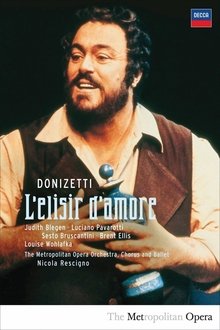
L'Elisir d'Amore (1981)
The Metropolitan Opera performance of L'Elisir d'Amore is conducted by Nicola Rescigno and features Luciano Pavarotti in the title role. Donizetti's graceful melodies have long endeared his L'Elisir d'Amore to operatic audiences and performers alike. Judith Blegen, Louise Wohlafka, Luciano Pavarotti, Nicola Rescigno, Sesto Bruscantini.
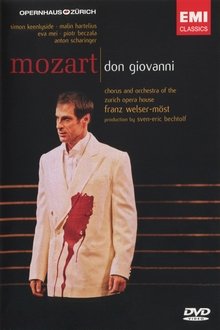
Don Giovanni - Zurich (2006)
Live performance Zürich, May and July 2006. Modern dress performance which generated mixed reactions.
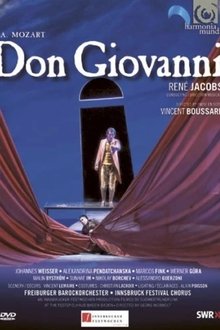
Don Giovanni live at the Innsbrucker Festwochen (2006)
Live performance filmed at the Innsbrucker Festwochen on 6 October 2006 at the Festspielhaus in Baden-Baden of Wolfgang Amadeus Mozart's opera Don Giovanni. Marcos Fink, Werner Güra and Alexandrina Pendatchanska perform as the principals, while the Freiburger Barockorchester and the Innsbruck Festival Chorus provide accompaniment. Georg Wübbolt directs.
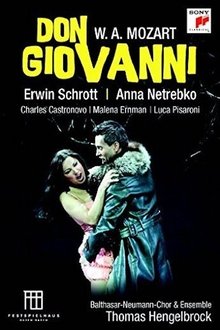
Mozart Don Giovanni (2013)
A live recording of Don Giovanni from the Festspielhaus Baden Baden, recorded on May 23rd 2013.
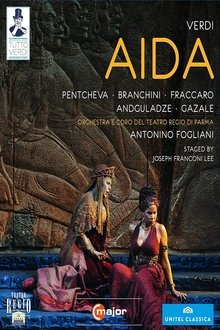
Aida (2012)
Very nice set and costumes by Mauro Carosi. The procuction is well staged in the relatively small scene at Parma by Joseph Franconi Lee. Here's a performance that really works.Everything seems just right, but if you MUST have the top soloists (Pavarotti, Domingo...), look elsewhere. However, I think that the ones here (Susanna Branchini (Aida), Mariana Pentcheva (Amneris), Walter Fraccaro (Radames), Alberto Gazale (Amonasro), Carlo Malinverno (Il Re di Egitto) do a fantastic job. Also pluses for the ballet and the video production.
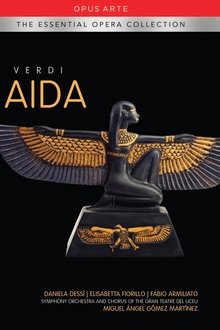
Aida (2003)
tt2266516. Aida (2003) Gran Teatre del Liceu. Verdi / Italian. Filmed at the Gran Teatre del Liceu, Barcelona, Daniela Dessì, Elisabetta Fiorillo, Fabio Armiliato, Juan Pons and Roberto Scandiuzzi lead the cast in the renowned period production filmed in 2003 against the historic paper trompe-l'œil sets painted between 1936-45 by Josep Mestres Cabanes, the last representative of the old Catalan school of scenography. Mestres Cabanes worked on his Aida vision for eight years. The opulent staging he created in 1945 is here in every detail. The seven magnificent sets he painted for Aida in 1945 have been subtly and painstakingly restored by Jordi Castells and his team – revealing the palaces, temples and surroundings of Memphis and Thebes which the set designer had wanted to evoke in his historical yet also fantasy-like vision.
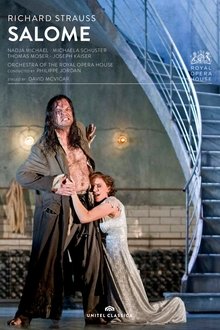
Salomé (2008)
David McVicar’s powerful Royal Opera House 2008 production of Strauss's opera – based on a play by Oscar Wilde – takes the controversial and disturbing film 120 Days of Sodom as its visual reference. The action is set in a debauched palace, which has suggestions of Nazi Germany. Strauss’s ravishing and voluptuous score adds to the sexual alchemy that is conjured by an international cast led by Nadja Michael in the title role.

